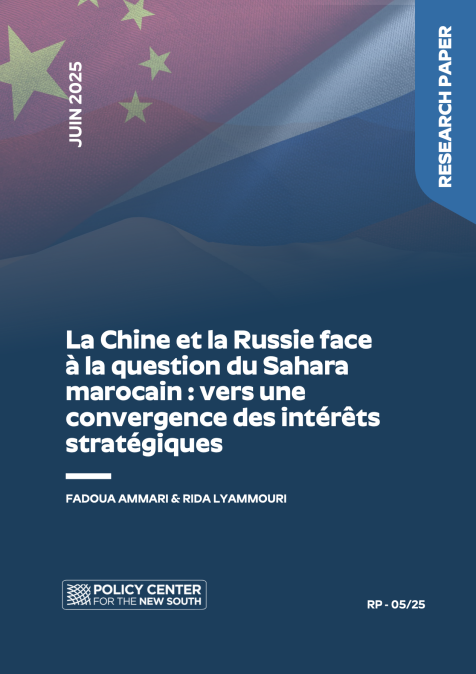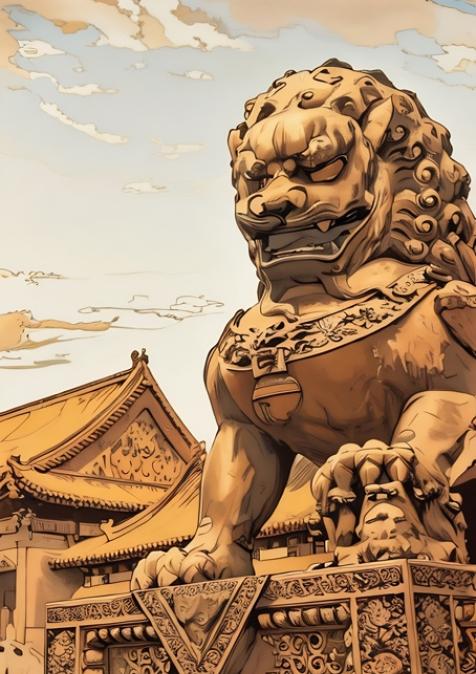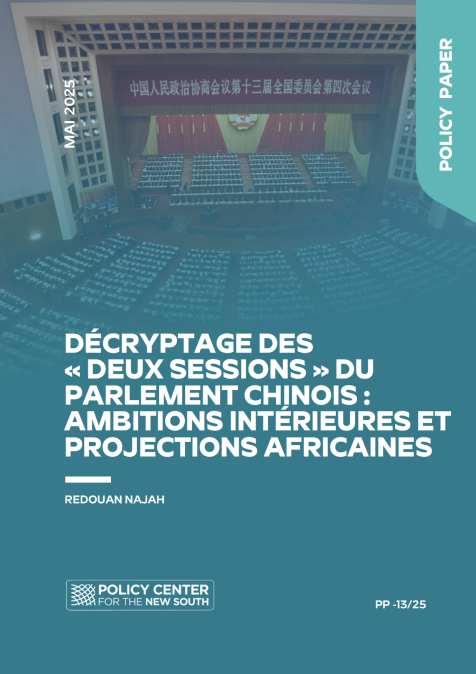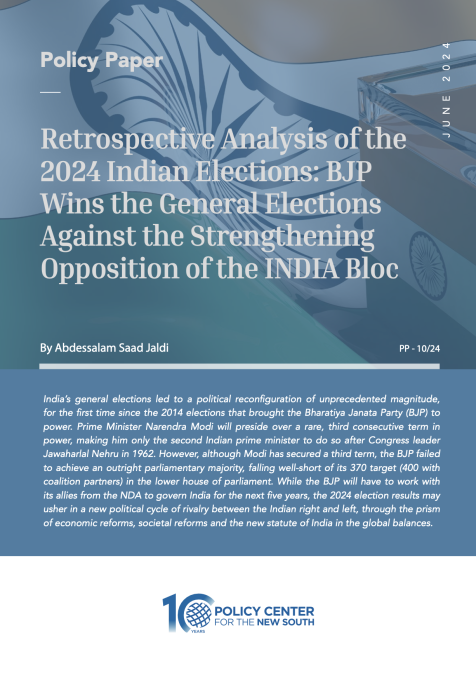Publications /
Opinion
With India looking more towards Africa as a home for sustainable partners, it is also looking at diversifying the areas of collaboration with several African countries, especially with Morocco. As early as 1967, India’s then Vice-President Zakir Hussain visited Morocco and set the tone for engagement between both countries. The latter has established diplomatic relations based on mutual understanding, tolerance and respect. Since then, the two countries have enjoyed fruitful relations that materialized in various sectors.
Drivers for Security Cooperation
Indian-Moroccan engagement started with freedom as a key driver after their independence in the framework of the Non-Aligned Movement. The relationship evolved to include further collaboration in the fields of agriculture, trade and food security amongst others. Indeed, the traditional areas of cooperation used to be fertilizers, chemicals, automobile, renewed energy, construction, and tourism to some extent with the opening of a regional office of the Moroccan Tourism Authority in India. Morocco was one of the main partners to walk India towards its green revolution. By providing fertilizers that are adaptable to the needs of Indian soils, Morocco helped India walk faster towards achieving a green revolution.
While we could consider that the collaboration between India and Morocco has reached an optimal level, both countries are looking at taking the collaboration further. Looking at assets from both countries indicates that there is room for upgrading the type of mutual engagement.
Morocco enjoys an advantageous status of being one of the most stable countries in North Africa. In the wake of increasing security challenges in North Africa but also in the Sahel region, Morocco continues to play a key role in enhancing regional stability. Its soft power approach to countering violent extremist discourses and smart management of social demands fuelled its image a politically stable country. Indeed, Morocco’s approach to preventing violent extremism (PVE) and countering violent extremism (CVE) is based on three multidimensional pillars. First, intelligence gathering. Second, socio-economic reforms. Third, the reform of religious schools. Besides, Morocco is already partnering with the United States of America, France and Spain, -amongst others, in the field of countering and preventing violent extremism.
Furthermore, Morocco’s Central Bureau of Judicial Investigation (BCIJ) holds positive records that reinforce Morocco’s position as a leader in countering radical discourse and deconstructing violent extremist discourses. The BCIJ, created in 2015, has been actively working on dismantling some of the terrorist cells and arresting terrorism-related suspects. It has also worked with partner countries on intelligence sharing to prevent violent extremist attacks.
Similarly, we can praise India’s approach in the fields of defence and security. Indeed, India has a historic tradition inherited from Hindu pacifism whereby it considers military power as a tool for self-defence and resistance to domination. In parallel, India’s experience in shipbuilding is recognized worldwide and the country enjoys several competitive advantages in this sector. It’s low labour cost combined with a strong domestic demand make up for favourable shipbuilding industry, including the manufacturing of some ship components.
Whether on a side or another, both countries have remarkable experience on which they can leverage to reinforce their collaboration in the security field. Given the multiplication of complex new threats, including transnational threats, it is essential to reinforce the cooperation between countries to capitalize on each other’s experience.
There are growing interests from both sides to leverage on each country’s expertise. Both countries have a growing interest in security issues as they are located in the middle of a volatile environment and face threats to their internal as well as external stability. The issue of violent extremism cannot be dealt with at the national level only but it also requires a joint multidimensional approach.
Furthermore, cyber threats are increasingly worrying and are part of the tools for asymmetric wars. Despite countries efforts to improve their IT security, cyber-attacks and security breaches persist. Besides, the rapid evolution and sophistication of cyber-attacks can threaten the digital transformation which usually includes highly sensitive data. The rapid deployment of digital technology puts digital infrastructures at risk. Since cyber-attacks are transnational, cooperation for preventing them is increasingly important.
From High-Level Visits towards Concrete Actions
Since His Majesty King Mohammed VI’s visit to India in 2015 on the occasion of the Africa-India Summit, several agreements were signed between both countries. While the emphasis was mostly on food security, security, including cyber, emerged as priority cooperation area. Following His Majesty King Mohammed VI visit, the two countries elevated bilateral ties to the level of a strategic partnership.
Since 2018, there are more signs that India and Morocco are looking to expand their collaboration to the security field. Given their shared challenges, collaborating on security aspects is of utmost importance to secure joint patterns of peace and prosperity. Morocco stands out as one of the top security partners for India in North Africa. This new collaboration on security matters will feed the India-Morocco partnership.
In September 2018, Deputy Minister for Administration and National Defence, Abdeltif Loudyi met with Indian Minister of Defence, Nirmala Sitharaman in New Delhi. The discussions covered new areas of mutual interest. Indeed, the two ministers addressed issues of national defence, maritime security and defence industry. To assert their cooperation in those newly identified fields, the two countries signed two MoUs to collaborate in areas of defence and security, including cybersecurity. The first MoU signed by the Moroccan Computer Emergency Response Team and its counterpart aims at deepening cooperation in the cybersecurity field. The two parties agreed on exchanging knowledge to cope with security-related incidents. The second MoU covered the peaceful uses of outer space. This MoU which comes with more technical cooperation aims at deepening cooperation in the science of space and satellite technologies. The collaboration on space comes as an additional step in tackling transnational issues that affect both India and Morocco. With their respective experiences, India and Morocco can highly benefit from joining efforts in preventing external threats. Both countries also agreed to collaborate in shipbuilding and manufacturing support. Two months later, Indian Minister of State for Home Affairs, Kiren Rijiju, and Morocco's Minister of Justice, Mohamed Aujjar signed an agreement on mutual legal assistance and to create a joint legal framework both for tackling crimes and preventing acts of violent extremism. The collaboration between both countries looks at identifying, investigating and prosecuting crimes as well as any terrorism-related activities. It also includes an agreement for extradition measures.
In February 2019, the Indian Minister of External Affairs, Smt. Sushma Swaraj was on a two-day visit in Morocco where she met with the Moroccan Minister of Foreign Affairs and International Cooperation. The visit was translated into the signing of four cooperation agreements. One of them aims at countering terrorism through joint efforts. The two ministers discussed the possibility of setting up a working group on security cooperation and information sharing. This collaboration reaffirms the need for cooperation on issues affecting countries globally. The issue of violent extremism cannot be dealt with at the national level only but it also requires a joint multidimensional approach. Indeed, Rabat and New Delhi will be working together on various aspects such as identifying sources of funding of violent extremisms and ending the recruitment by violent extremist groups. They have also agreed to reinforce their collaboration in the framework of multilateral security bodies.
Since then, Morocco has provided India and Sri Lanka with relevant information days before the Sri Lankan terrorist attacks. Morocco’s Central Bureau of Judicial Investigation service has identified the identity of nine suicide bombers of the attack on 21 April 2019. Thanks to its intelligence data, it was able to provide Sri Lanka with relevant information to conduct an operation in Colombo aiming at eliminating terrorists who were planning a second round of attacks after the Easter Sunday Bombings. In general, Morocco holds a substantial database about ISIS and some of its network.
Beyond intelligence sharing and cooperation on preventing acts of violent extremism, there was also a rapprochement with the Royal Moroccan Navy. In July 2019, the Royal Moroccan Navy and the Indian Navy organized joint activities such as a special passage exercise at sea. This exercise took place on the sidelines of the Indian Naval Ship Tarkash three-day visit to Tangier. The choice of Tangier highlights India’s recognition of Morocco’s strategic positioning in the Mediterranean.
Conclusion
In sum, including security in the cooperation agenda of Morocco and India is a way to upgrade the relationship between both countries. This new field of cooperation entails benefits not only to the two countries but also to their respective regions. Furthermore, it will help India and Morocco undertake more concrete actions to prevent and react to global issues.
“This article has been originally published in 'Morocco in Focus 2019,' the magazine of the Moroccan Embassy in New Delhi, India on the occasion of the National Celebration of July 30th.”








